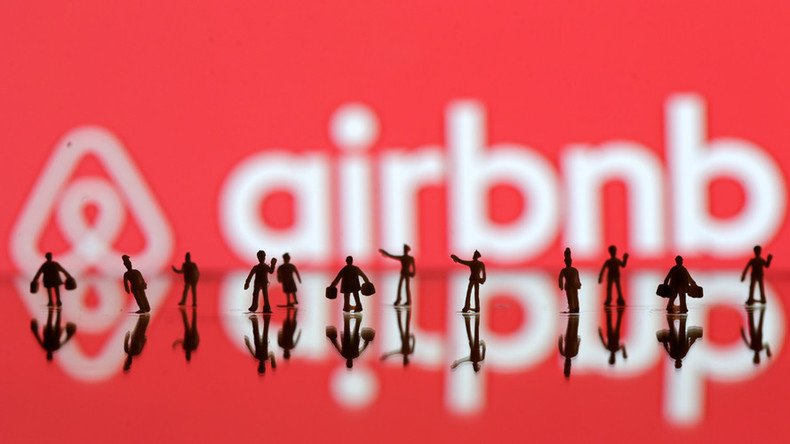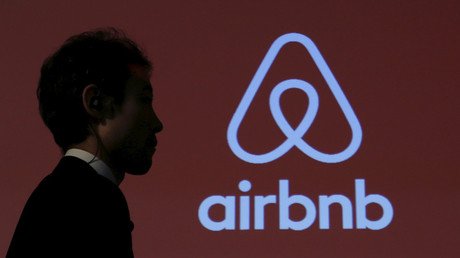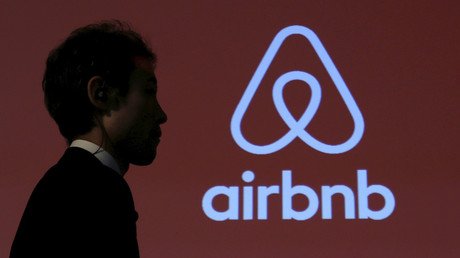Airbnb sues San Francisco over host-registry law, cites free speech rights

Airbnb has sued the city of San Francisco over a new law that levies a fine for any short-term rental property host who is not registered with the city. The lawsuit comes amid a multi-front assault on Airbnb-like services.
Airbnb announced its lawsuit on Monday, saying the city's ordinance is "flawed" and is a violation of the Communications Decency Act (CDA) of 1996, the Stored Communications Act and its own free speech rights.
This month, the San Francisco Board of Supervisors unanimously approved a new law that will require all short-term rental property hosts who work with the likes of Airbnb and VRBO to register with the city. Failure to register will result in a fine, applied to the company, of $1,000 for each unaccounted for host.
"It is a content-based restriction on advertising rental listings, which is speech," Airbnb said of the ordinance. "These provisions squarely violate the CDA, which prohibits 'treat[ing]' websites who host or distribute third-party content, like the Hosting Platforms at issue here, 'as the publisher or speaker of any information provided by another information content provider,' and immunizes them from liability under any ‘inconsistent’ state or local law."
The ordinance "also violates the federal Stored Communications Act, which creates uniform privacy protections for internet users and prevents cities from simply demanding that platforms turn over user information without a subpoena or other legal process," the company said in a post on its website.
In addition to its complaint, filed in US District Court in San Francisco, the company has also filed for a preliminary injunction against the ordinance, due to go into effect in a matter of days.
“This is an unprecedented step for Airbnb, and one we do not take lightly, but we believe it’s the best way to protect our community of hosts and guests," the company said in explaining its opposition to the ordinance and why it has sued in federal court to stop it.
San Francisco has about 9,000 short-term rentals, according to the Los Angeles Times, but only about 1,650 have registered with the city. The city and other governments who have targeted short-term rental property companies have said they are attempting to protect affordable housing options. Unions and the hotel industry have often supported laws against the likes of Airbnb, which, for its part, says it is offering hosts a chance to pay their bills and avoid foreclosure or eviction by renting out their space.
‘Experience #refugees life’:They advertise tents, camps, wood-fire cooking on #Airbnb.Watch: https://t.co/5dsAhhwW9lhttps://t.co/VQDyVb42FS
— RT (@RT_com) June 28, 2016
Airbnb, based in San Francisco, said it has gone to great lengths to address the city's previous concerns, which have been based on the effects of short-term rental property on the city's limited housing market. Airbnb said it has held 11 town halls and numerous individual meetings with its hosts this year to encourage registering with the city. Now, the city will begin levying fines through what the company called a "hastily-crafted proposal."
"There is a need for policies that protect San Francisco’s housing stock and ensure the collection of hotel taxes but also enable residents who depend on Airbnb to make ends meet," the company said. "For over five years, we have worked with City government to create fair rules for home sharing."
The challenges facing Airbnb and like companies are not limited to San Francisco. In Los Angeles, the city's Planning Commission recently endorsed proposed rules that would result in fines for short-term rental property companies whose hosts advertise rental space without registering with the city. Companies could also be fined for not offering addresses of hosts not registered with the city.
Companies and industry groups like the Internet Association have said the proposed rules in Los Angeles violate federal law, an argument similar to that of Airbnb regarding the ordinance passed in San Francisco.
Report: Airbnb Ate Up 10% Of NYC's Available Rentals In 2015 https://t.co/3TQcBKrbf3
— Gothamist (@Gothamist) June 28, 2016
Last week, the New York State Senate approved a bill that would outlaw online advertising for short-term rentals of entire apartments, as opposed to rooms or a section of a dwelling. Fines would begin at $1,000 and would increase to as much as $7,500 for repeat offenders who advertise a rental. The state has already banned apartment rentals for less than 30 days.
The bill could be a violation of free speech rights, according to an attorney and vice president with the Goldwater Institute.
“Prohibiting people from advertising their homes online would appear to be a violation of free speech rights,” Christina Sandefur told watchdog.org. “Of course, the First Amendment protects the free exchange of information, so long as it isn’t fraudulent or misleading.”















